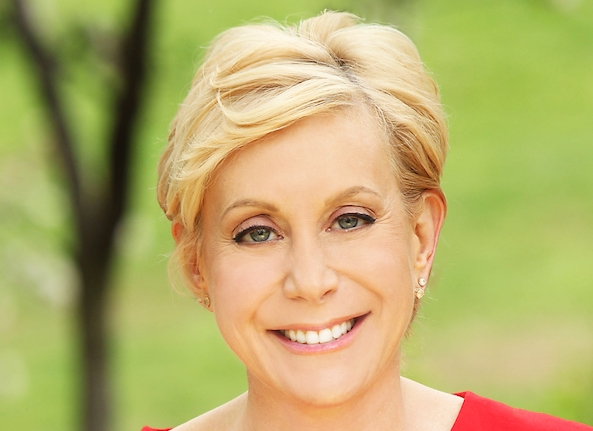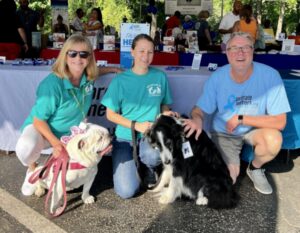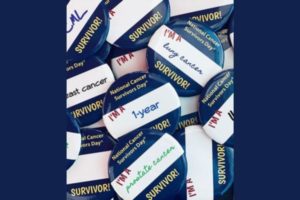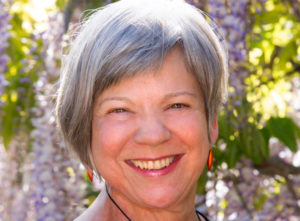[NCSD guest blog post by Melanie Young]

You’ve just been diagnosed with cancer, and you are numb and scared. Your world just turned upside-down. Let me help you set it right.
I am 10-year breast cancer survivor, diagnosed August 6, 2009. I was in your shoes, shocked, freaked, and little ashamed that I’d allowed my health to get away from me. I was a control freak in so many parts of my life, yet, my world now felt out of control. Here are a few things I want you to know.
A cancer diagnosis is not just about managing a disease.
It’s about managing your life better and improving your overall well-being. You have been given another chance to live the best life you can. How you do this is your choice. Choose wisely. You don’t want to make a return trip to Cancer Land once treatment ends if you can help it!
Never underestimate the importance diet has on your long-term health.
I am a food and wine professional; eating, traveling, and sharing the pleasures of the palate is my business. When I was diagnosed with early-stage breast cancer, I worried that my chosen profession could have been a contributing factor to my cancer diagnosis. My cancer diagnosis changed my relationship with food. Before cancer, I used to live to eat well. Now, as a survivor, I eat to live well. Food became important – still delicious – nourishment, a fuel to protect my body throughout treatment.
Investing in good food is far better than incurring the costs of getting sick.
Consider a healthy diet as an insurance policy against getting sick. I still eat well, but I choose my foods more carefully and eat more mindfully. It’s not about doing without; it’s about redoing how you approach eating and improving the quality of ingredients you consume. I edited my diet and reduced my intake of foods that I knew were not in the best interest of my health, such as meat, pork, processed foods, dairy, and refined sugars, and I added in more foods that were beneficial such as fresh vegetables, whole grains, lean proteins, and healthy oils.
Movement and exercise is critical to your health.
The benefits of exercise are numerous. During my cancer treatment, I took regular walks which helped me stay mentally focused and energetic as I struggled with chemo brain and neuropathy. Besides boosting your metabolism and supporting a healthy heart, body strength, and flexibility, a regular exercise regimen can also help you manage your weight. This is essential for staying healthy since being overweight is a contributing factor to disease.
The day you were diagnosed will become a milestone marker in your life that you did not expect.
This can happen to anyone who experiences something traumatic. Over time, your feelings may change, or may not. If someone tells you to “move past the experience,” remember, it’s your choice and your story, not theirs. Own up to what you stand for and how you want this day to look for you. Some say the day you were diagnosed is the day you become a survivor. I also feel it’s the day you become an advocate for better health. You can’t help but want to make changes for yourself and for others. Just be sensitive; your journey and passion about improving the world for people facing cancer may not be someone else’s.
There may be unexpected emotional triggers after treatment ends.
My heart skips a beat and I feel dizzy when I hear that someone has had a recurrence or is diagnosed with cancer or dies from the disease. It’s a normal reaction for individuals who experience something traumatic in their lives; if it becomes something more difficult to manage, seek help. It’s okay to acknowledge that you need help. I didn’t do this and wish I had.
Throughout your life, people will say the strangest things to you about cancer that may seem downright insensitive.
Don’t take it personally. Sometimes people have no idea what to say, or may feel awkward and blurt out something that just does not resonate. Listen to your inner voice and not someone else’s comments.
Some survivors may say having cancer was a “gift,” a health reawakening.
My response is, “Please don’t re-gift that one to me!” I consider cancer a bad bump in the road of life that I managed to navigate, and I managed to come out relatively intact. But there were some cherished “gifts” that came my way during the journey. One was meeting amazing women throughout the world who have been touched by breast cancer whom I may never have known. Many have become friends. Another “gift” was learning to cook and to enjoy making fresh meals at home for the first time in my life.
The biggest “gift” is time to live my life, preferably on my terms, and to make a difference. Others don’t have the choice; I never take it for granted. I am still here.
And hopefully, you will be, as well, traveling in my shoes as a healthy survivor – 10 years later.
A 10-year breast cancer survivor, Melanie Young is the author of Getting Things Off My Chest: A Survivor’s Guide To Staying Fearless & Fabulous in the Face of Breast Cancer and Fearless Fabulous You: Lessons on Living Life on Your Terms (Cedar Fort/Plain Sight). A Certified Holistic Health Coach, she hosts the weekly national radio show, “Fearless Fabulous You!” found on W4WN –the Women 4 Women Network and iHeart Radio. Find Melanie at melanieyoung.com.




